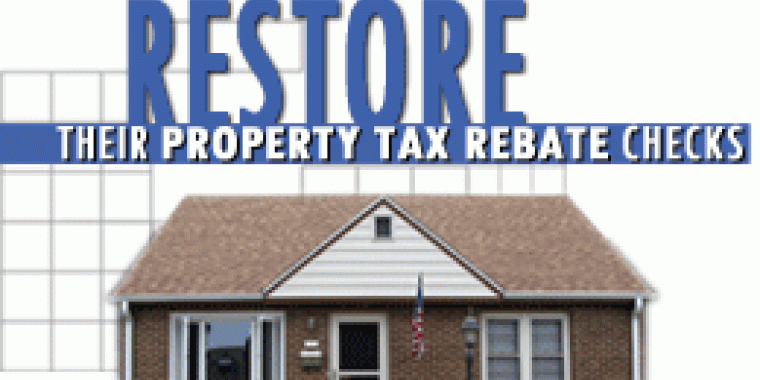
Property Tax Relief is Overdue
James L. Seward
March 11, 2010

For many people the great American dream is to own a home. Unfortunately, once you achieve that dream in New York, the nightmare known as property taxes can keep you up at night. According to the Tax Foundation, a nonpartisan tax research group based in Washington, D.C., New York routinely leads the nation when it comes to high property taxes. In fact, between 1977 and 2008, the Empire State ranked first of second in the country for its state-local tax burden compared to the U.S. average.
The hefty tax load in New York has become prohibitive. Many families abandon the hope of home ownership and move out of state. Senior citizens are forced to sell off property where they have raised their children. Those who remain are left with an even higher tax bill and no relief in sight. Clearly a change is needed.
I have joined with a number of my colleagues in the state senate in offering an important tool aimed at transforming New York’s property tax system and providing immediate relief. The “Homeowner Protection and Property Tax Rebate Act” is a multi-pronged approach that will usher in economic freedom for taxpayers.
Under the proposal, homeowners would receive property tax relief checks equal to their 2008 STAR property tax rebates or an amount based on their incomes through a new property tax relief credit, whichever proves more beneficial.
The STAR rebate would be approximately thirty percent of a homeowner’s current STAR exemption, providing hundreds of dollars or more each year in property tax relief. A new “circuit breaker” tax credit would give back seventy percent of all property taxes paid in excess of six percent of household income.
Under the “circuit breaker,” a taxpayer with household income of $50,000, paying $5,000 in property taxes, would receive a $1,400 tax credit. A taxpayer with household income of $90,000, paying $9,000 in taxes, would receive a $2,520 tax credit.
Over the years, property taxes have continued to rise, outpacing wage increases for many hard working families. The trend has left millions of homeowners facing tax bills that far exceed their ability to pay. The proposed legislation would combat this dilemma and help bring costs back in line. The plan also includes a proposal to freeze property taxes for seniors age 70 or older to help address the problem of seniors living on fixed incomes who are being taxed out of their homes.
The “Homeowner Protection and Property Tax Rebate Act” also includes substantial measures to help school districts control their spending. Offering school administrators the tools to keep costs down and make more effective use of state aid dollars will better serve students and reduce property tax bills.
The plan calls for a permanent ban on all unfunded mandates, along with implementation of new reforms at the State Education Department to keep costs down. In addition, the plan would reduce paperwork for schools, authorize regional transportation and provide school districts with greater flexibility to purchase from existing contracts held by other government entities. A property tax cap would also be instituted to ensure that school districts do their part to hold the line on spending.
In these tough economic times, any program like this can only be considered if it is cost effective. The “Homeowner Protection and Property Tax Rebate Act” more than measures up in that regard. The plan would be paid for with savings generated from passage of a cap on state spending, which I have long advocated for and helped approve in the state senate on two separate occasions. A spending cap would have saved taxpayers $6.4 billion in last year’s budget and will produce more than enough revenue to provide property tax relief going forward.
Property tax relief has long been a priority of mine. It must be at the top of every state legislator’s agenda as we move forward with budget negotiations.
Share this Article or Press Release
Newsroom
Go to NewsroomOctober Is Down Syndrome Awareness Month
October 22, 2009
Important Flu Information
October 22, 2009

Down Syndrome Awareness Month
October 16, 2009